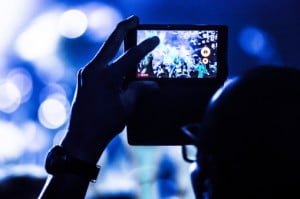
A subpoena may be necessary
Crime investigators need to go through the proper procedures to gain access to evidence to make sure it will be admissible in court. They may collect it at the crime scene or later subpoena a particular mobile device account to acquire the boatloads of data a person’s cell phone provides, including social media accounts, GPS coordinates, photos, Google Maps location history, and much more.
A handheld device can be a defendant’s a savior or a condemner
Digital evidence can be incredibly significant in a criminal case, either clearly proving someone’s innocence or irrevocably showing guilt. It can corroborate witness testimony or contradict it completely. But the challenging thing about handheld device evidence is that it can be manipulated rather easily. Hacking, skimming, and other ways of changing digital evidence are common, and now people don’t even need to physically hold the device to be able to access and change its information—it can be accomplished remotely from any location.
Legal pitfalls make digital evidence slippery
Another problem with digital evidence is that it can easily fall into various legal jurisdictions. Laws governing processing and prosecution of crime vary from state to state, and there is no standard way of handling evidence acquired through handheld devices, so it can easily be destroyed, tampered with, or otherwise rendered ineffective. Data ownership can also be a sticky issue because it’s possible for someone to give investigators the password to their email account, for example, but if it has been hacked by a third party, it could contains all kinds of spam and false information that has nothing to do with the real owner of the phone. It’s up to prosecutors to actually link the owner of the phone to the actual data contained in it, which can be really tricky in many cases.
Privacy laws and customs are vague when it comes to electronic info
Most Americans expect to have a certain level of privacy when sending emails and making phone calls, but the majority have lower privacy expectations when it comes to sending texts and social media messages. Cultural expectations as well as legal precedents when it comes to privacy are rather muddled when it comes to digital information. Privacy laws can be interpreted in various ways, leaving attorneys and judges with a legal grey area when it comes to digital information and the laws of each state.
Video evidence might not be admissible in court
Surveillance cameras and video from handheld devices are becoming increasingly commonplace in courthouses nationwide, but there are still situations where video evidence is not permitted in criminal court cases. To make it admissible, police investigators need to find out and prove to the court where the video came from, how it was recorded, who maintains the equipment, and how exactly it relates to the case at hand for it to be admissible evidence in court. When video evidence is properly collected, preserved, and authenticated, it will likely be admitted at a criminal trial—but it’s never a done deal.
If you’re facing a criminal charge, get the best lawyer in Southern California on your side by calling Chambers Law Firm at 714-760-4088. Call today to schedule a free consultation.




